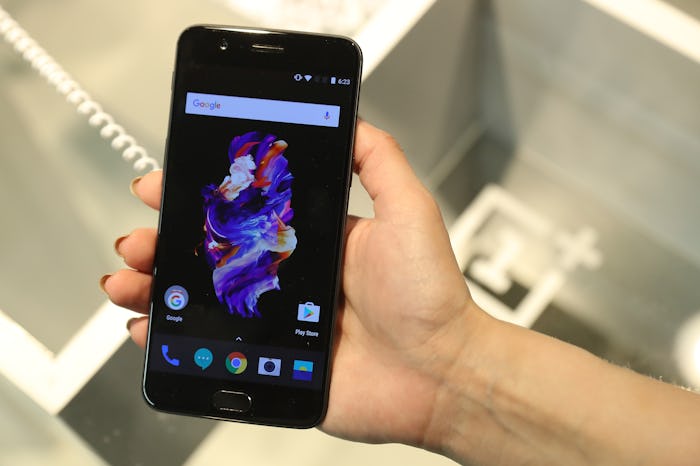Life

If You're Anxious, You Might Want To Put Your Phone Away
During our day-to-day lives, most of us live with our cell phones perpetually within close reach: to Google a lunch spot, take a phone call, or scroll through Instagram. But scientists are warning that increased cell phone use can cause anxiety and depression, and the number of studies linking tech use to mental health are piling up.
Dr. Nancy Cheever, a researcher at California State University, recently set up a smaller version of her past research experiment on air at ABC News, showing viewers in a matter of minutes the amount of stress our phones cause us. Cheever set several volunteers up with equipment to monitor their anxiety and stress levels, then took their phones from them, pretending the signals could interfere with the equipment.
Cheever then had assistants text and call the phones, which were out of reach, and the participants' stress levels spiked. It's the same result Cheever got during her original study in 2014, when she found that frequent cell phone users suffered anxiety when separated from their phones.
Another study, published earlier this month in Child Development, found that teens' nighttime use of cell phones was linked to increased levels of anxiety and depression, as well as lower levels of self-esteem. And the problem, experts say, isn't limited to teens alone: psychologist Lisa Damour told CBS News that the problem affects anybody who uses technology.
"Everybody needs electronic curfews and I think we can sort of just say, these are universal rules," Damour told CBS News. "We have to be good about our own phones and our own technology and our own sleep."
According to researchers, what's happening is that we're associating the dopamine rush we get from social media and technology with happiness — but that short-lived rush sends us into a negative feedback loop, where we become dependent on checking our phones constantly.
"The way we're living doesn't actually serve our deeper well-being," psychotherapist Nancy Colier told ABC News. "All of this attention to technology, and the mind, and thoughts is coming at a great expense to the other aspects of what ... human beings need to feel well."
So what's the alternative? It's simple, but hard to do: check your phone less. According to a study by Deloitte, the average American checks their phone a shocking 47 times a day. About half of the respondents included in Deloitte's study checked their phone in the middle of the night, and 30 percent used their phones before going to bed.
It's getting harder and harder to ignore the connection between frequent cell phone use and mental health, so it's worth weaning yourself off your social media habit. You can start by keeping your phone out of your bedroom, turning off notifications, and setting aside phone-free time (or, alternatively, chunks of time when you can check your phone). And as your kids grow up, consider implementing some tech boundaries for them, too.